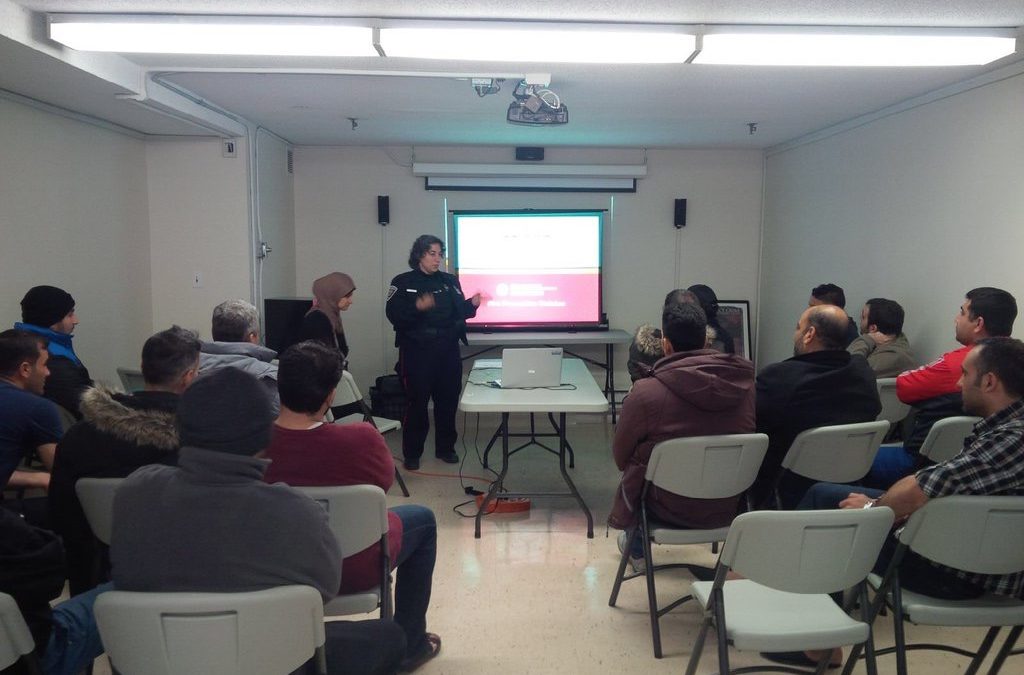Imagine answering a knock on the door of your new apartment, and finding two people in uniform waiting to speak to you. You might think you’re in trouble… unless you recognize that the uniformed officers are Ottawa firefighters, going door to door with their “Wake Up Program,” making sure people have working smoke and CO alarms.
Helping newcomers understand Ottawa’s emergency services and providing information on safety issues is the goal of the Tri-Services workshop for refugees. Ottawa Fire Services already gives fire safety presentations, and wanted newcomers to know about Ontario fire safety regulations. Together with Ottawa Police Services and the Paramedics, they created the Tri-Service workshop. It includes basic fire safety, such as kitchen safety, smoking, escape planning, the Wake Up program, and how to ask for a translator when calling 911. The workshop also covers when it’s appropriate to call 911 (so as not to be charged for the service), and what to expect from various emergency responders. It also deals with personal safety information and cultural differences and expectations. About 350 people have been through the presentations to date, which have taken place at reception centres, and in gathering places in their new neighborhoods.
The program is delivered in Arabic. At a recent presentation in Ottawa’s east end, more than 20 Syrian refugees attended a workshop given by Arabic-speaking Ottawa Police Cst. Lila Shibley, assisted by Fire Prevention Officer Sue Jones, and Zina Muhsen, Case worker from the Catholic Centre for Immigrants. The workshop provided a forum for lively discussion on a wide range of topics, including how to discipline teens, what to do with the fire alarm goes off in your building, where smoking is allowed, what issues might lead to immigration difficulties, and what gear children should be wearing when they’re on bicycles.
At the end of the sessions participants receive bags with kitchen items, toys such as model ambulances and colouring books, and printed materials including a fire escape plan translated into Arabic. Other Arabic language material includes a Home Safety Checklist, information on medical emergencies and information about CHEO.
Fire Prevention Officer Sue Jones has been impressed by the warm reception from adults and children alike, and noted “the level of kindness and openness from people who have been through such traumatic and likely very painful experiences.” People are the same everywhere, she notes. “They/we just want to feel safe, secure, and welcome.”

